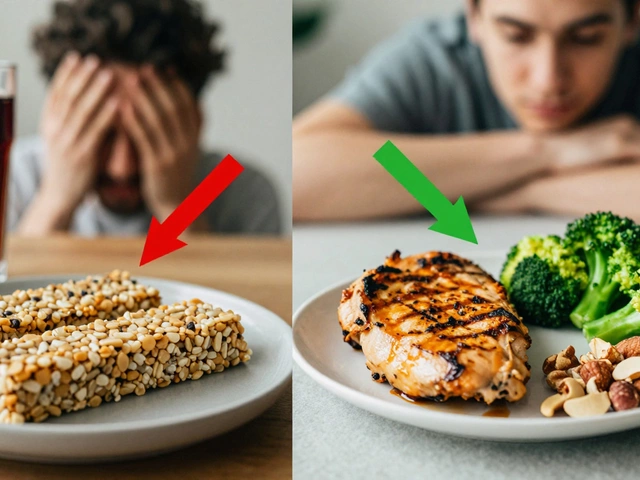Curious about supplements? Discover the five main types, their benefits, science, and safety tips, with key facts and practical advice to help you make informed choices.
Read MoreSupplements: What They Are and How to Use Them Right
If you’ve ever wondered whether a pill or powder can help you feel better, you’re not alone. Supplements are products that add nutrients, herbs, or other ingredients to your diet. They can fill gaps, support a specific goal, or back up a healthy lifestyle. The key is to pick the right ones and use them safely.
Why People Take Supplements
Most folks turn to supplements for three reasons: to cover a missing nutrient, to boost a health goal, or to manage a condition. For example, many Indians use Ayurvedic herbs like Ashwagandha for stress relief. Others add Vitamin D when they get little sun, or take calcium for strong bones. If weight loss is your aim, you might see products like Metformin or Semaglutide mentioned, but those are prescription medicines, not over‑the‑counter supplements.
When you choose a supplement, think about what you actually need. A quick blood test can tell you if you’re low on iron, B12, or vitamin D. If the test shows a deficiency, a targeted supplement can be a fast fix. If you’re simply looking for extra energy, a balanced diet with whole foods often works better than a caffeine‑filled pill.
How to Pick Safe and Effective Supplements
Not every supplement on the shelf is safe. Here are three steps to keep you on track:
- Check the label: Look for the amount of each ingredient, the form (powder, capsule, tablet), and any added fillers.
- Research the brand: Choose manufacturers that follow Good Manufacturing Practices (GMP) and have third‑party testing.
- Talk to a professional: A doctor, pharmacist, or qualified Ayurvedic practitioner can tell you if a supplement might clash with meds you’re already taking.
Take the safety of Ashwagandha as an example. It’s generally well‑tolerated, but high doses can cause stomach upset, and people with thyroid issues should be careful. Reading the dosage instructions and consulting a health expert can prevent problems.
Another tip: avoid “miracle” claims. If a supplement says it will make you lose 20 pounds in a week without diet or exercise, it’s likely a scam. Sustainable results come from a mix of proper nutrition, movement, and realistic supplement use.
Remember that supplements are just that – a supplement to a healthy lifestyle, not a replacement for good food, sleep, or exercise. Pairing them with a balanced diet rich in fruits, vegetables, whole grains, and lean protein maximizes their benefit.
In short, supplements can help when you need them, but only if you choose wisely, check safety, and use them as part of an overall healthy routine. Start with a clear goal, verify the product, and get a professional’s nod. That way, you’ll get the boost you want without unwanted side effects.
Uncover the fascinating details of Greg Brecka's diet and nutrition philosophy, from daily habits to biohacking experiments. Learn how his approach blends data, cutting-edge science, and real food.
Read More





